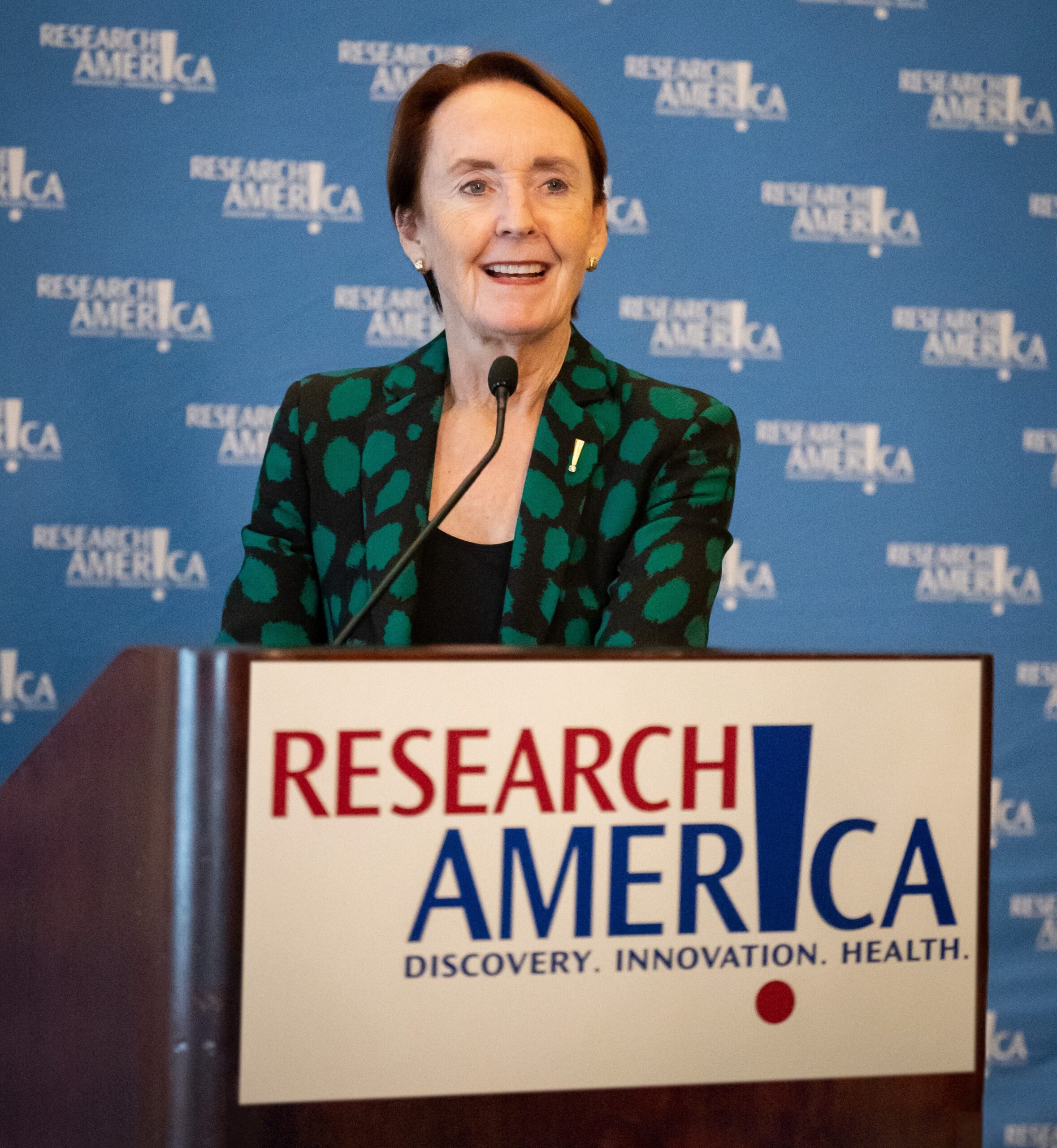The Budget Roller Coaster

Dear Research Advocate,
This week, House and Senate leaders proposed a bipartisan tax deal that among its many provisions, includes important refinements to the treatment of research and development investment. In a Bloomberg article (subscription-based), Research!America’s own Ellie Dehoney stated: “The R&D tax credit has incentivized scientific and technological advances critical to the health, prosperity, and security of the American people and populations across the globe.” As it stands now, the tax package needs more support to pass in Congress. With additional negotiation and advocacy, hopefully these critical policies will be restored as one of several federal levers that help drive innovations for patients.
On The Hill: An additional federal lever is funding, but four months into the fiscal year, we’re not where we need to be. Tonight, Congress is sending the President yet another Continuing Resolution to extend FY23 funding into early March, kicking the proverbial can down the road. Appropriations leaders are negotiating how funding would be allocated across federal agencies and programs for the rest of FY24. (For a refresher on this year’s roller coaster of an appropriations process, see this ”Frequently Asked Questions” (FAQ)from Erik Fatemi who recently addressed our alliance members.)
Advocates must keep pushing for final legislation that boosts funding for NIH and our nation’s other science and public health agencies. To that end, we sent this letter to appropriations leaders earlier today. Join us – you can use this editable email to encourage your Senators and Representatives in Congress to prioritize faster scientific and medical progress and provide robust funding for research agencies in FY24.
Please keep sharing our #CuresNotCuts resources on your social media channels. This week’s graphic focuses on the mental health crisis in our nation and the resources and research needed to address it. Let’s continue amplifying the message that Americans want and need cures, not cuts, in FY24.
NIAID at Risk: As you may know, the House has proposed an alarming 23% cut to the budget of the National Institute for Allergy and Infectious Diseases (NIAID) in FY24. Please consider signing your organization onto this community letter which makes the case for NIAID’s critical work to alleviate coronaviruses, sepsis, antimicrobial resistance, autoimmune diseases, and so many other current and future health perils. Review the letter and sign on today. The deadline is COB Friday, Jan. 26.
Science Policy Interns Wanted: The NIH’s Office of Science Policy is looking for the next generation of science policy professionals for its virtual Summer Internship Program. This 8–12 week program will enable interns to engage with leading policy experts to learn strategies for advancing national science and technology policy and obtain practical experience in policy analysis and development. Share this opportunity with your networks. Applications are due Feb. 12.
Tech Transfer At Risk: As I mentioned last week, Congress, with broad bipartisan support, passed the Bayh-Dole Act 30 years ago, creating a new “tech transfer” system that led to an explosion in U.S.-driven medical and other scientific and technological breakthroughs. A new proposed Commerce Department rule would require government research agencies to breach tech transfer agreements if the agency disagrees with the market prices set by private industry on products developed with federally funded research. While affordability is a concern for us all, this is a wrong way to go about it and could harm progress critical to U.S. innovation and economic security as well as global health.
On Jan. 22, at 12:30 p.m. E.T, we hope you will join (and actively participate in) a conversation about the implications of this rule with Dr. John Hamre, former U.S. Deputy Secretary of Defense and President and CEO at the Center for Strategic and International Studies, and Capitol Hill veteran and health policy expert Paul Kim. It’s a needed discussion around an important, time-sensitive topic, and we would truly value your participation. Register on Zoom.
ICYMI: Speaking of Congressional priorities, we were joined this afternoon by Brian Fahey, Legislative Director for House Energy and Commerce Health Subcommittee Chair Brett Guthrie (R-KY-02), for an off-the-record, alliance member-only discussion. Brian shared Chair Guthrie’s priorities for this key subcommittee including making health care costs more transparent, providing oversight of public health agencies, and addressing substance use disorders.
If you are interested in participating in our next off-the-record, member-only discussion but your organization is not a Research!America member, contact Joel Nepomuceno to learn how to join our alliance.
Preparing for the Next Outbreak: When and where might the next infectious disease outbreak occur? What measures can we take to guarantee the readiness of our public health system? Join us on Jan. 23, at 11:30 a.m. ET, for an alliance discussion with Dr. Rita Colwell, a Distinguished University Professor at the University of Maryland College Park, Founder of CosmosID, Inc., and former Director of the NSF.
Dr. Colwell, recipient of Research!America’s 2024 Builders of Science Award, will delve into the strategies and tools she has employed to monitor outbreaks in United Nations-member countries. Discover how these approaches and other advancements could enhance public health preparedness for future outbreaks.
Don’t forget to mark your calendars for our 2024 Advocacy Awards on March 13, where we will be honoring Dr. Colwell and our other distinguished honorees.




